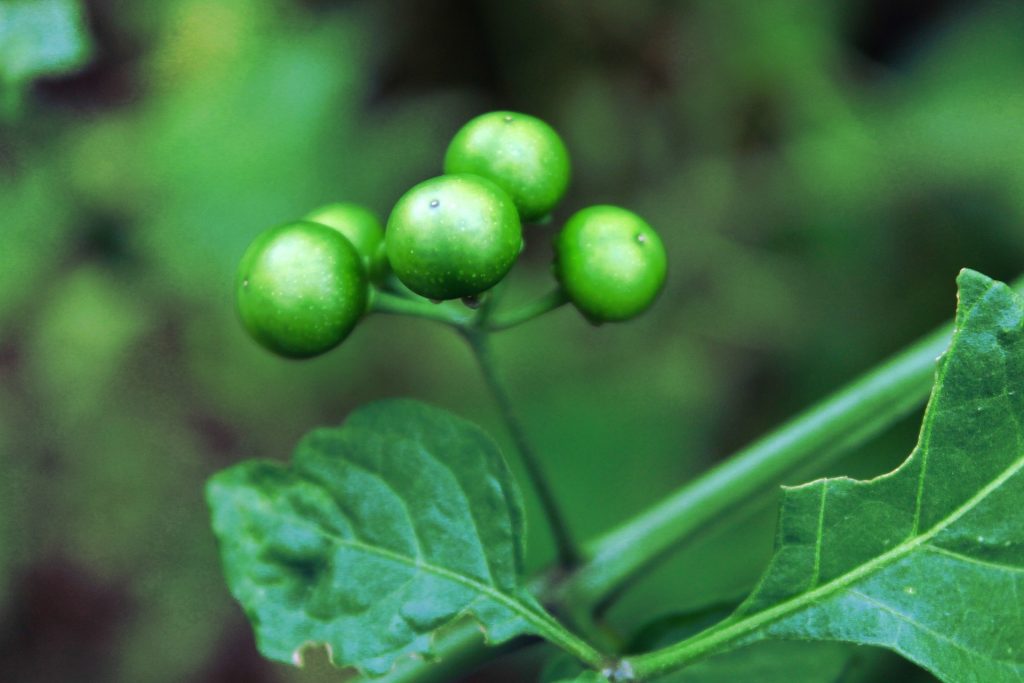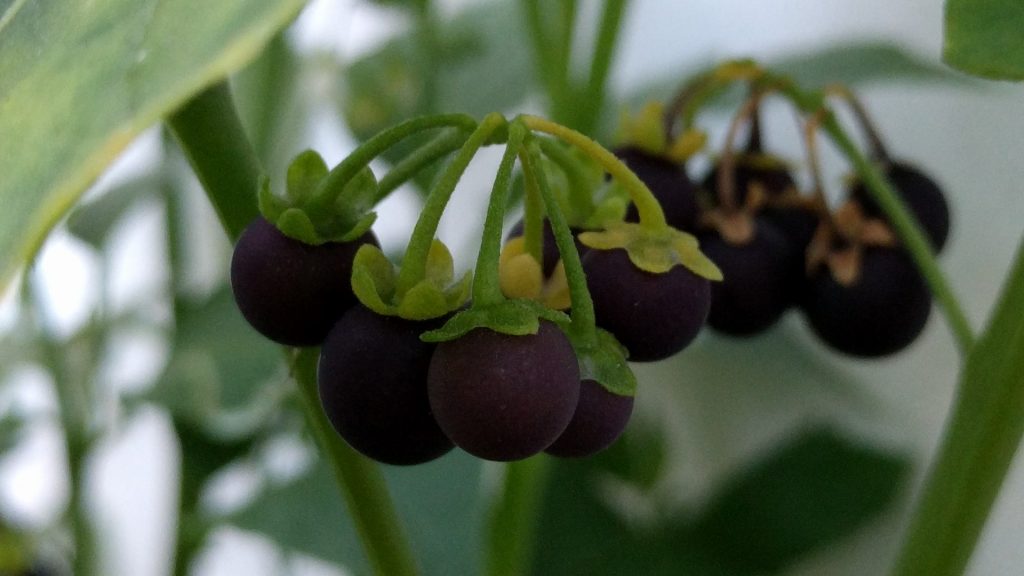 Black nightshade is a perennial herb that is distributed widely throughout the World. It can be found in wooded areas and open fields, and produces a dark purple berry. Traditionally the fruit of black nightshade has been boiled to produce a yellow liquid, and this has been used as a nervous tonic, which suggests that it may possess neurochemical effects in humans. Studies investigating the effects of black nightshade are limited, but a number of studies have investigated the possible neurochemical effects in animals. In one study for example, ethanol extracts of black nightshade fruit significantly potentiated the sleep time duration of rats administered the sedative barbiturate phenobarbital. This can be taken as evidence that black nightshade has significant sedative properties. Further when administered the black nightshade extract, the rats showed significant reductions in movement, suggesting they had indeed been sedated. Black nightshade may therefore have sedative properties in mammals.
Black nightshade is a perennial herb that is distributed widely throughout the World. It can be found in wooded areas and open fields, and produces a dark purple berry. Traditionally the fruit of black nightshade has been boiled to produce a yellow liquid, and this has been used as a nervous tonic, which suggests that it may possess neurochemical effects in humans. Studies investigating the effects of black nightshade are limited, but a number of studies have investigated the possible neurochemical effects in animals. In one study for example, ethanol extracts of black nightshade fruit significantly potentiated the sleep time duration of rats administered the sedative barbiturate phenobarbital. This can be taken as evidence that black nightshade has significant sedative properties. Further when administered the black nightshade extract, the rats showed significant reductions in movement, suggesting they had indeed been sedated. Black nightshade may therefore have sedative properties in mammals.

Black nightshade appears to be well tolerated in rats and mice at doses able to induce sedation. Ethanol extracts of black nightshade appear to be able to induce central nervous system depression and this may be due to a reduction in the activation of the sympathetic (adrenaline based) branch of the central nervous system. Extracts of black nightshade significantly reduce the exploratory behaviour of mice and their curiosity in maze tests, suggesting that central nervous system activity has been diminished. However, the unripe green berries (pictured) are toxic to humans and animals and so only ripe dark purple berries should be consumed.
The neurochemical effects of black nightshade may relate to the unique phytochemistry contained within the plant. Analysis of black nightshade extracts have been performed, and differences in phytochemistry have been noted between different extract types (water, methanol and ethanol). However, generally the fruit extracts are rich in alkaloids, something which is common to many medicinal plants. Black nightshade contains at least 23 different alkaloids, and these have been shown to possess antibacterial effects comparable to antibiotics in their effect. Other phytochemicals within black nightshade include flavonoids (apigenin, luteolin, quercetin and kaempferol), saponins, tannins, phenols, hydrocyanic acids, and phytic acid. Minerals present include sodium, potassium, calcium, magnesium, iron, and zinc, although the exact mineral composition likely closely related to the mineral content of the soil. The phytochemicals in black nightshade fruit also give it a significant antioxidant effects in mammalian tissues.

The presence of flavonoids in black nightshade extracts may also explain the anti-inflammatory effects of extracts of the plants. Studies have demonstrated the anti-inflammatory effect on inflammation in the paws of rats. Significant reductions were seen in experimentally induced inflammation when black nightshade extracts were applied topically to the foot, in comparison to control treatments. Flavonoids present in black nightshade include the flavones apigenin and luteolin and the flavonols quercetin and karmpkerol.
Eat Well, Stay Healthy, Protect Yourself
RdB
